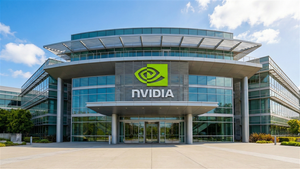Alector Presents Baseline Characteristics for INVOKE-2 Phase 2 Clinical Trial of AL002 at the Alzheimer's Association International Conference® 2024 (AAIC®)
--INVOKE-2 is the first global Phase 2 trial evaluating the safety and efficacy of a TREM2 agonist, AL002, in slowing disease progression in individuals with early Alzheimer’s disease (AD)--
--Baseline characteristics data for the INVOKE-2 study confirm a representative study population that enables testing of the effects of a novel TREM2 agonist in early AD--
SOUTH SAN FRANCISCO, Calif., July 28, 2024 (GLOBE NEWSWIRE) -- Alector, Inc. (Nasdaq: ALEC), a clinical-stage biotechnology company pioneering immuno-neurology, today announced the presentation of a poster on baseline characteristics for the global INVOKE-2 Phase 2 clinical trial evaluating the safety and efficacy of AL002 in slowing disease progression in individuals with early Alzheimer’s disease (AD) at the Alzheimer's Association International Conference® 2024 (AAIC®). The conference is being held online and in Philadelphia, Pennsylvania from July 28 – August 1, 2024.
INVOKE-2 is the first global Phase 2 trial exploring a novel TREM2 agonist, AL002, in early AD. AL002 is an investigational humanized monoclonal antibody (mAb) that binds to triggering receptor expressed on myeloid cells 2 (TREM2), and it is the most advanced TREM2 agonist product candidate in clinical trials. The candidate is being developed in collaboration with AbbVie.
"The baseline characteristics of the patients in INVOKE-2 are important for assessing the quality of our double-blind, placebo-controlled Phase 2 clinical trial evaluating the safety and efficacy of AL002, the most advanced TREM2-activating candidate in clinical development for early Alzheimer’s disease,” said Gary Romano, M.D., Ph.D., Chief Medical Officer of Alector. “We are pleased that the baseline clinical assessments confirm that the INVOKE-2 trial enrolled the intended population of participants with early Alzheimer’s disease, allowing us to test Alector’s hypothesis that treatment with this first-in-class TREM2 agonist may slow disease progression.”
Baseline characteristics are important in Phase 2 trials because they ensure the reliability and interpretability of trial results, help manage patient safety, and facilitate appropriate statistical analyses. A total of 381 participants were randomized in INVOKE-2. The median age of participants was 71 years (range: 51-85 years), with 78% of participants 65 years of age or older. Overall, 50% of participants were female and 94% were Caucasian. The clinical diagnosis at enrollment was mild cognitive impairment due to AD for 67% of participants and mild dementia due to AD for 33% of participants.
Treatment-emergent brain MRI changes resembling amyloid-related imaging abnormalities (ARIA) have been observed in the trial. These changes were of greater incidence and severity in homozygous APOE e4 carriers, and the company chose to discontinue homozygous APOE e4 carriers early in the trial. Of the 381 enrolled participants, 59% were heterozygous APOE e4 carriers. Amyloid positivity was confirmed in all participants prior to enrollment by analysis of cerebrospinal fluid or amyloid PET (Positron Emission Tomography). For those participants (n=244) with amyloid PET assessed at baseline, the mean standard deviation (SD) in centiloids was 100.1 (38.9).
Additional details will be presented during the poster presentation, “Baseline Characteristics for INVOKE-2: A Phase 2 Randomized, Double-Blind, Placebo-Controlled Study Evaluating AL002 in Early Alzheimer’s Disease” (#95594) on Sunday, July 28, 2024, from 8:00 a.m. – 4:15 p.m. ET at AAIC®.
A Phase 1 study of AL002 demonstrated dose-dependent target engagement and dose-dependent effects on microglial signaling biomarkers, and the treatment was well-tolerated in healthy volunteers at multiple doses.
Results of the INVOKE-2 trial are expected in the fourth quarter of 2024, and the long-term extension (LTE) study is ongoing for those who completed the planned treatment period. Thus far, nearly all eligible participants have rolled over into the LTE study, which will facilitate better understanding of the long-term effects of AL002.
About INVOKE-2
INVOKE-2 (Clinicaltrials.gov identifier NCT04592874) is a double-blind, placebo-controlled, dose-ranging, multi-center, randomized clinical trial in patients with early AD. The trial utilizes a common close design with up to 96 weeks of randomized treatment, and all participants remain on their assigned regimen until the last participant completes 48 weeks of treatment. This design provides the opportunity to capture more observations for the primary analysis, with data collected for up to 96 weeks. Patients are randomized to three dose regimens, 15mg/kg IV/q4w, 40mg/kg IV/q4w, 60mg/kg IV/q4w, or placebo.
About AL002
AL002 is an investigational humanized monoclonal antibody that targets triggering receptor expressed on myeloid cells 2 (TREM2), a key microglial membrane receptor that senses pathological changes in the brain. Studies have identified 40 TREM2 mutations related to Alzheimer’s disease (AD), with heterozygous mutations increasing AD risk by as much as threefold.1 Reduced TREM2 function may contribute to AD and other neurodegenerative diseases. Conversely, higher levels of TREM2, as measured by cerebrospinal fluid (CSF) levels of soluble TREM2 (sTREM2) are associated with lower amyloid and tau accumulation as well as attenuated cognitive and clinical decline.2,3
AL002 is designed to increase TREM2 signaling and enhance microglia proliferation, survival, and function. Binding of AL002 to the TREM2 receptor aims to trigger microglial signaling pathways, bolstering the effectiveness of microglia in protecting the brain against insults, including age-related neurodegeneration in AD. The clinical potential of AL002 is currently under investigation in clinical trials focused on evaluating its impact on AD.
Collaboration with AbbVie
In October 2017, Alector entered into a global strategic collaboration with AbbVie (NYSE: ABBV), to co-develop and commercialize therapeutics to treat Alzheimer’s disease and other neurodegenerative diseases. Under the terms of the agreement, Alector granted AbbVie an exclusive option to global development and commercialization for the AL002 TREM2 program. If AbbVie exercises its option for the program, Alector would be eligible for additional payments totaling up to $475M, which includes the $250M option exercise fee and future milestones. Alector and AbbVie will share development costs and profits after marketing approval, though Alector may opt out of development cost sharing and instead receive royalties.
About Alector
Alector is a clinical-stage biotechnology company pioneering immuno-neurology, a novel therapeutic approach for the treatment of neurodegenerative diseases. Immuno-neurology targets immune dysfunction as a root cause of multiple pathologies that are drivers of degenerative brain disorders. Alector has discovered and is developing a broad portfolio of innate immune system programs, designed to functionally repair genetic mutations that cause dysfunction of the brain’s immune system and enable rejuvenated immune cells to counteract emerging brain pathologies. Alector’s immuno-neurology product candidates are supported by biomarkers and seek to treat indications, including Alzheimer’s disease and genetically defined frontotemporal dementia patient populations. Alector is headquartered in South San Francisco, California. For more information, visit www.alector.com.
Forward-Looking Statements
This press release contains forward-looking statements within the meaning of the Private Securities Litigation Reform Act of 1995. Forward-looking statements in this press release include, but are not limited to, statements regarding our business plans, business strategy, product candidates, planned and ongoing preclinical studies and clinical trials, anticipated timing and detail or release of data for INVOKE-2, expected milestones, expectations of our collaborations, and expectations of our interactions with regulatory authorities. Such statements are subject to numerous risks and uncertainties, including but not limited to risks and uncertainties as set forth in Alector’s Quarterly Report on Form 10-Q filed on May 8, 2024, with the Securities and Exchange Commission (“SEC”), as well as the other documents Alector files from time to time with the SEC. These documents contain and identify important factors that could cause the actual results for Alector to differ materially from those contained in Alector’s forward-looking statements. Any forward-looking statements contained in this press release speak only as of the date hereof, and Alector specifically disclaims any obligation to update any forward-looking statement, except as required by law.
REFERENCES
1. Mutations TREM2 | Alzforum. (n.d.). Retrieved November 29, 2023, from https://www.alzforum.org/mutations/trem2.
2. Ewers M, et al.; Alzheimer’s Disease Neuroimaging Initiative. Increased soluble TREM2 in cerebrospinal fluid is associated with reduced cognitive and clinical decline in Alzheimer's disease. Sci Transl Med. 2019 Aug 28;11(507):eaav6221.
3. Pereira, J.B., et al. Microglial activation protects against accumulation of tau aggregates in nondemented individuals with underlying Alzheimer’s disease pathology. Nat Aging 2, 1138–1144 (2022).
Alector Contacts:
Alector
Katie Hogan
202-549-0557
katie.hogan@alector.com
1AB (media)
Dan Budwick
973-271-6085
dan@1abmedia.com
Argot Partners (investors)
Laura Perry
212.600.1902
alector@argotpartners.com

More News
View More




Recent Quotes
View More
Quotes delayed at least 20 minutes.
By accessing this page, you agree to the Privacy Policy and Terms Of Service.
